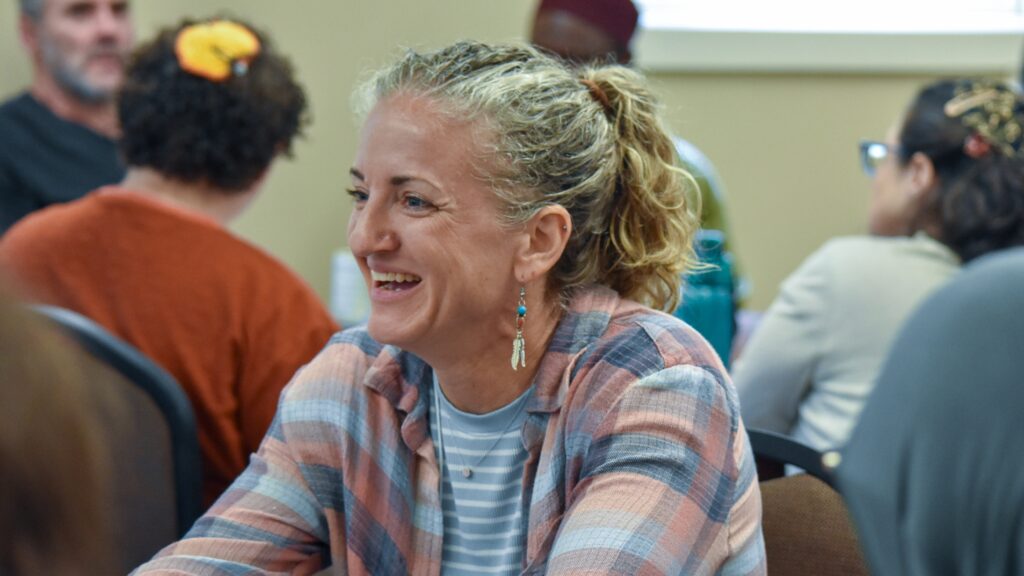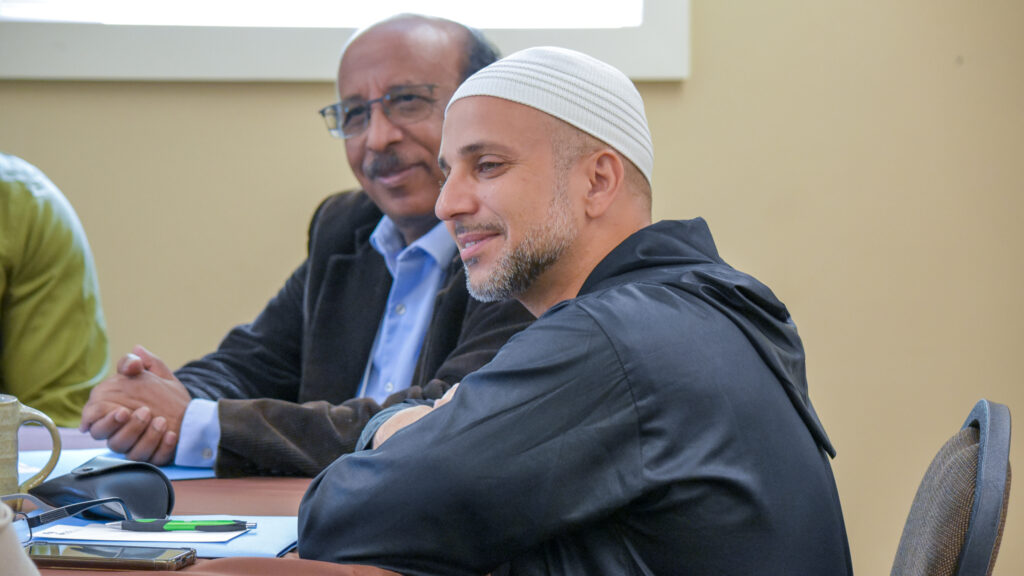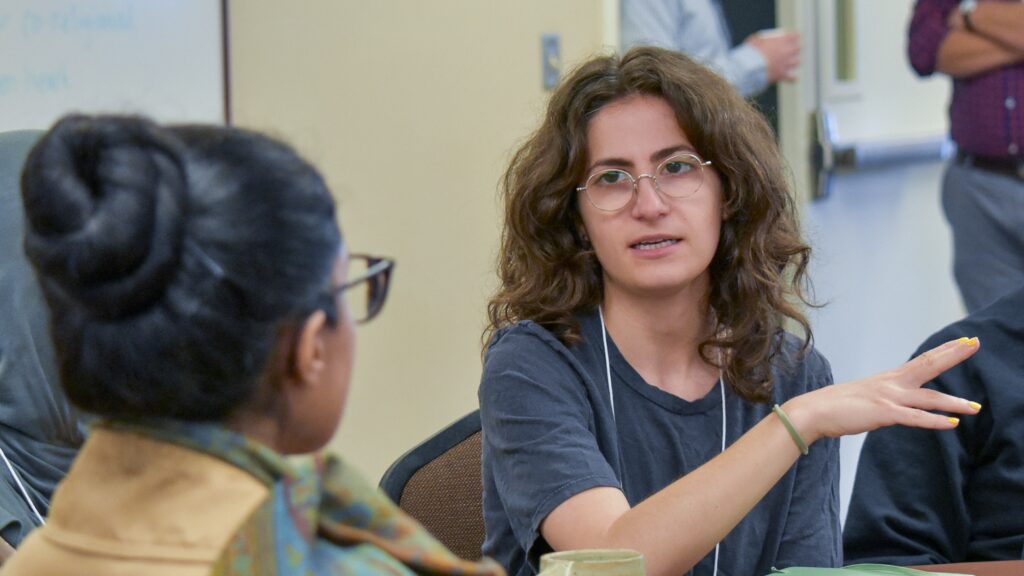For Religious Leaders in Training
The Emerging Religious Leaders Intensive (ERLI)
The Emerging Religious Leaders Intensive (ERLI) is a week-long residential immersion experience in interreligious learning and dialogue for Christian, Jewish, and Muslim seminary students training for leadership roles.
For the past decade, ERLI has filled a key gap in seminary education as few institutions offer such in-depth interreligious learning through study and experiences.
Details
- June 1-June 5, 2026.
- Pearlstone Center, Reisterstown MD.
- Program, travel, food, and lodging costs covered by ICJS.
What to Expect
-
Engage in rigorous interreligious learning through presentations, reflections, and small group study.
-
Learn how religious communities read, interpret, and embody sacred traditions differently.
-
Develop lasting friendships.
-
Potentially earn course credit (Not guaranteed, but we will work with your institution to help you receive credit).
How to Apply
Contact your school’s ERLI coordinator or email erli@icjs.org
Rachel Jones, Fuller Theological Seminary

“I am leaving this program with a deep sense of holy discomfort. Few experiences so intently and gently, yet assertively, challenge people of faith toward actual transformation like ERLI does.”
Ibrahim Mossallam, Boston Islamic Seminary
 “In a country and world where faith and God-consciousness is diminishing, a collective interreligious effort is needed to reverse this trend. It all starts with dialogue with religious and future religious leaders.”
“In a country and world where faith and God-consciousness is diminishing, a collective interreligious effort is needed to reverse this trend. It all starts with dialogue with religious and future religious leaders.”
Noa Kattler Kupetz, Hebrew College
 “My experience at ERLI opened my heart in ways I couldn’t predict. Building friendships with leaders in other faiths has led me to reflect on my own faith practice, and has shown me the benefits of staying committed to connection.”
“My experience at ERLI opened my heart in ways I couldn’t predict. Building friendships with leaders in other faiths has led me to reflect on my own faith practice, and has shown me the benefits of staying committed to connection.”
Building Bridges Through Dialogue: Reflections on the ERLI Interfaith Workshop
A beautifully insightful recap of the Emerging Religious Leaders Intensive (ERLI), where Jewish, Christian, and Muslim student leaders came together in June 2025 to engage in meaningful dialogue, build lasting connections, and foster mutual understanding.
Over the course of five days, I came to see that human-to-human connection through honest dialogue and shared experiences is essential to building understanding between people of different faiths.
Emerging Religious Leaders Intensive Rosters
Attending this service, which was based off of Episcopalian liturgy and texts, and seeing in English the exact words that I say in my daily prayer was deeply moving.
Yeshivat Maharat

ICJS is an Affiliate Member of The Association of Theological Schools in the United States and Canada (ATS).